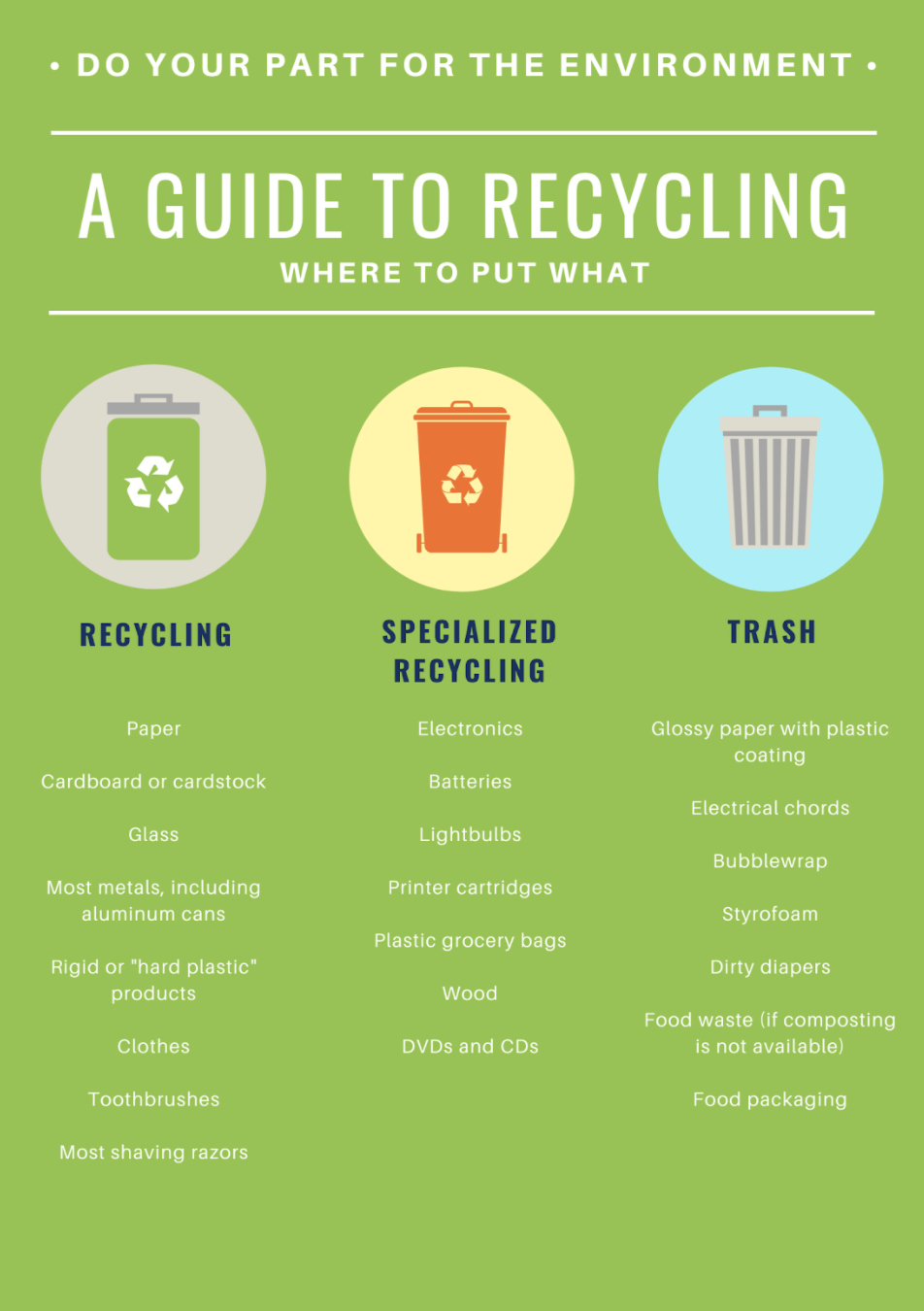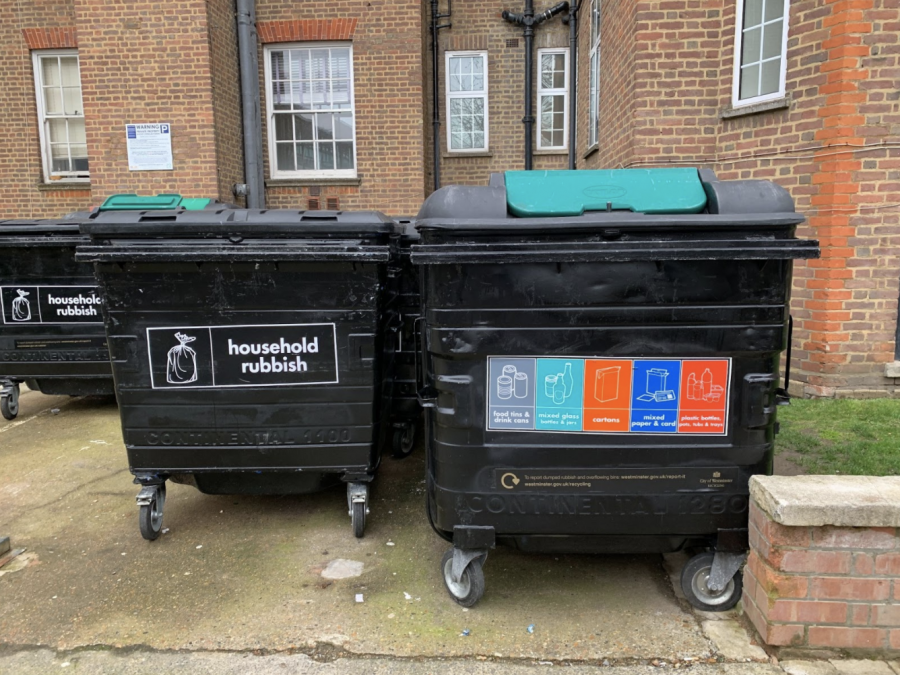Hello readers! My name is Eden. Let me introduce to you my environmental awareness column. Once a month, I am going to investigate an environmental issue that impacts either the ASL community or is a cause for action on a governmental level.
In addition, I will be providing advice on how to make effective eco-friendly changes in your own life. Let’s face it, everyone at one point or another has been told to recycle something and wondered, “How much of a difference will it really make?”
The truth is, recycling does have a beneficial impact on the environment, more so than you would think. By remembering to throw your soda can into the recycling bin instead of the trash, you actually save enough energy to power a 100-watt bulb for approximately four hours.
Furthermore, other materials, such as glass, can be recycled many times and still maintain their original quality. In fact, 80% of recycled glass is used to make new glass bottles, and for every 20 glass bottles you recycle, you save two pounds of carbon emissions. Reducing carbon emissions slows the rate at which our planet warms.
By remembering to throw your soda can into the recycling bin instead of the trash, you actually save enough energy to power a 100-watt bulb for approximately four hours.
Recycling also helps minimize waste, which is a necessity in our consumerist society. With the world’s growing population predicted to hit 9.7 billion by 2050 and the high demand for natural resources, it is more important than ever to preserve what we can.
By 2050, estimates suggest that fossil fuels will have run out. This is an integral energy source used to make many things, such as plastic, which only emphasizes the need to recycle plastic waste. Other resources that are quickly running out include metals used in electronics and wood from forests suffering from deforestation.
The recycling process allows for the possibility of reusing materials instead of eating up more of Earth’s limited resources, and much less energy is required to recycle products than extracting, processing and transporting the raw materials it takes to make new ones. Activities such as fracking – drilling into the Earth for oil – also cause both water and air pollution, harming wildlife and biodiversity.
Homes in London produce 890 thousand tonnes of food waste annually while 540 thousand tonnes of this food could have been eaten.
Furthermore, mass amounts of waste sit in landfills for hundreds of years decomposing, which release toxins into the groundwater and soil. Greenhouse gases like methane are also produced which contribute to global warming. Recycling reduces the amount of waste that is sent to these landfills.
Unfortunately, landfill space in the U.K. is becoming more and more limited; besides, expanding these spaces is unsustainable and too expensive of an option to continue with.
However, Sweden has created a nation-wide recycling strategy, putting itself at the forefront of environmental progress. The government realized the need for ecological change early on and developed a successful recycling policy that has simultaneously benefited them economically.
Sweden is saving money by replacing fossil fuels with waste to produce energy; this solution generates $100 million annually by importing trash and recycling the waste produced by other countries.
Only 1% of waste is disposed of through the use of landfills in Sweden, and 47% is recycled. The remaining 52% of trash is then burned and converted into energy that provides heating to 1 million homes and electricity to 250 thousand.
As a result, Sweden has reduced its carbon dioxide emissions, one of the most prominent greenhouse gases responsible for global warming, by 2.2 million tonnes a year.
Meanwhile, only 44% of the U.K.’s waste is recycled.

Although findings show 85% of citizens living in London claim to believe recycling makes a difference, the city manages to have some of the lowest recycling rates in the U.K.
Homes in London produce 890 thousand tonnes of food waste annually while 540 thousand tonnes of this food could have been eaten.
Mayor of London Sadiq Khan’s recycling target to be recycling 50% of waste by 2030 can only be met if our recycling rate increases by almost a third, requiring individual households to increase recycling by nearly 60 kg per year.
For more information on how to become a better recycler, check out this article.
It’s also critical to recognize why implementing effective initiatives is essential in preventing environmental issues because sayings like “every little thing counts” are thrown around too frequently.
This is well illustrated through the marshmallow test, which was an experiment designed by Columbia University professor Walter Mischel that assessed children aged 4 to 5 on their self-discipline skills. Each test subject was left alone in a room with a marshmallow that a researcher had provided. The researcher explained to the child what their options were: eat one marshmallow now or wait until the researcher returns with another and the child would then have two.
While this experiment was initially conducted to examine children’s willpower and track how each child did later in life regarding levels of success and social skills, it also demonstrates the simple principle that if you can delay short-term gratification, the long-term reward will prove to be much more valuable.
Since then, it has been found that success in any field necessitates discipline, initiative and hard work, according to journalist and New York Times bestselling author James Clear. Therefore, people will not be capable of achieving any significant impact in helping the environment if they supplement easy fixes for long-term progress.
Thus, we must continue to educate ourselves on how we can improve the environmental wrongdoings around us and remain aware of how, collectively, our every-day choices can leave a significant impact on the planet.






